#tc boyle
Explore tagged Tumblr posts
Text
Just read chicxulub for class I will never recover
0 notes
Text
Tag Game!
Thank you @simplysimmingaway for the tag! 😁
last song I listened to: “Terrible Love” by The National
favourite place: Shenandoah mountains on a rainy day when the clouds settle in the valley and you can stand above them, also Lake Michigan
favourite book(s): Little Women, by Louisa May Alcott. Winesburg, Ohio, by Sherwood Anderson. A Prayer for Owen Meany by John Irving
currently reading: Drop City, by TC Boyle
favourite tv show: (currently) Happy Valley, Bridgerton, Derry Girls, (ever) Mad Men or Breaking Bad
favorite food: pizza
I’m tagging: @kimmiessimmies @igglemouse and @richmondsims if you want to do it, and also tagging anyone reading this who wants to play (let me know so I can read your answers!)
6 notes
·
View notes
Text
The Hit Man by TC Boyle.
an incomplete list of unsettling short stories I read in textbooks
the scarlet ibis
marigolds
the diamond necklace
the monkey’s paw
the open boat
the lady and the tiger
the minister’s black veil
an occurrence at owl creek bridge
a rose for emily
(I found that one by googling “short story corpse in the house,” first result)
the cask of amontillado
the yellow wallpaper
the most dangerous game
a good man is hard to find
some are well-known, some obscure, some I enjoy as an adult, all made me uncomfortable between the ages of 11-15
add your own weird shit, I wanna be literary and disturbed
#thank you for adding the links!#reading#short story#i would've said#a rose for emily#and#the yellow wallpaper#if they weren't already there
165K notes
·
View notes
Text
My Mother
and my father.
1 note
·
View note
Text
T.C. Boyle on color:
The morning was a fish in a net, glistening and wriggling at the dead black border of her consciousness, but she’d never caught a fish in a net or on a hook either, so she couldn’t really say how or why. p.3
She’d never been west before, never seen anything like it, and there he was, black bangs shielding his black eyes, a little deep-dwelling Indian kid, and she had to give him something. The hills screamed with cactus. The fumes of the bus rode up her nose and made her eyes water. p.4
They spent one night in Arizona in a teepee with a guy all tanned and lean, his hair tied back under a snakeskin headband, cooking brown rice and cauliflower over and open fire and swallowing peyote buds he’d gathered himself in the blinding white hills. p.4
“A tourist,” Ronnie said, the syllables dry and hard on his tongue. “Weekend hippie.” He was wearing a K-mart T-shirt Star had tie dyed for him their first day here, orange supernovae bursting out of deep pink and purple galaxies, and when he turned to the new girl the light behind him made his beard translucent. “You’re no tourist,” he said. “Right, Merry?”
—T.C. Boyle, Drop City
4 notes
·
View notes
Text
If anyone’s curious, this story, just like the first two, featured a mentally and emotionally unstable male protagonist who gets obsessed with an undercharacterized woman and then does something fucked up as a result. I feel like TC Boyle was in a rut when he was working on this collection, and that’s probably being charitable
Reading a short story collection and the first two stories are major downers. Surely the third, "killing babies", will bring some much needed levity
3 notes
·
View notes
Text
December Reads & Listens
Better late than never. Here is my December Reads & Listens reviews.
It’s a few days before the end of January and I am posting December’s Reads & Listens as a way of trying to move closer to a routine. December was a difficult month with my father being in the hospital for many weeks. The family on edge, not sure which way things would turn out. My father died on January 2, 2023. So has January been a struggle. In December I was looking for books to read that…
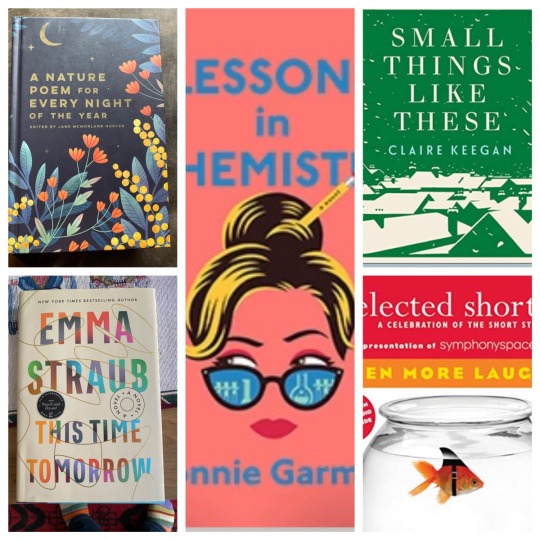
View On WordPress
#Bonnie Garmus#Claire Keegan#Emma Straub#Even More Laughs#Lessons in Chemistry#Miranda July#Selected Shorts#Small Things Like These#Symphony Space#TC Boyle#The Lie#The Swim Team#This Time Tomorrow
1 note
·
View note
Text
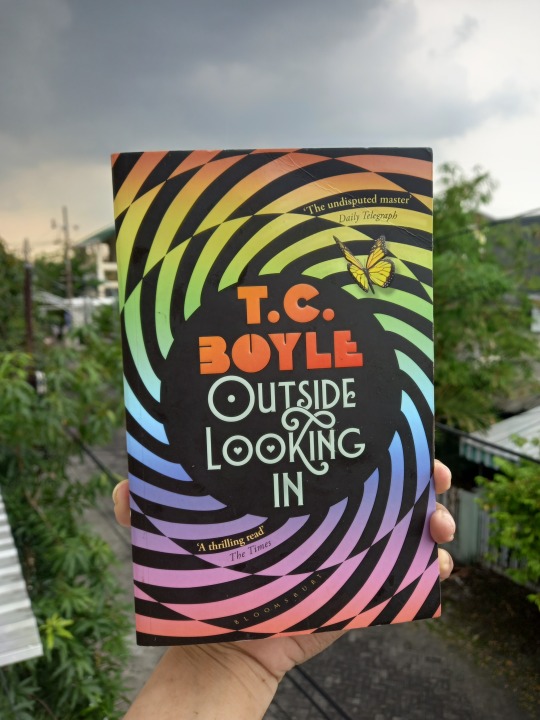
Title: Outside Looking In
Author: T. Coraghessan Boyle
Main Characters: Fitz & Joanie
What it likes to be participating in drug trial? Specifically, a mind altering one? Mid-30s Fitz is husband to Joanie and father to teenage boy Corey. He's just a graduate student in Harvard, trying to get his degree in psychology, make friends, and score some brownie points with his thesis advisor, Tim Leary. Soon, he tangled into Leary's experiment with Lysergic acid diethylamide, or LSD. What started as academic curiosity, spiraling into a commune full of drugs, alcohol, and sex. What's next for Fitz and his family?
Based on real counterculture commune in 1960s started by (real) Timothy Leary and his academic partner, Ram Dass, the book imagining how it feels to be part of the said commune. Of course now we know what is the effect of LSD and psilocybin on our body, but back in the 60s when the drugs are (technically) still legal, it is understandable that a Harvard professor like Leary will conduct an experiment with hallucinogen. The commune also started innocently, so to speak, as a group of academics wants to continue their experiment after their professor got kicked out from University. But it's no longer that way after a while. Can't mix business with pleasure, I guess.
What I like: I never tried drugs, or even drinking. The only alcohol I have at home is rubbing alcohol. I don't even smoke and actually hates the smell of cigarette. Part of it because of religious belief, and part of it because I'm a lightweight that got headache from missing a meal. And also, from the way I consume instant ramen, I'm pretty sure I'll be an addict once I got a whiff of wine. And anything that I never experience in real life is fascinating for me.
Also, I dare to say this book is historical fiction. My argument, a historical fiction doesn't have to involve a castle and a tiara, it just have to be a fictionalized version of real event happened in the past. And as Leary's commune existed in 1960s, this book qualified as one.
What I don't like: Lori. I don't like her as character, I also think this character is unnecessary. Fitz & Joanie already have a bunch of issues without a weird 19 y.o girl speaking in quote wedges between them. Yes, it's the straw that finally broke the camel's back for Joanie, but I still think she's unnecessary.
0 notes
Text
The Terranauts, by T. C. Boyle
There’s this one thing that I always found incredibly annoying about English books, and that German books thankfully don’t have (yet). I hate the bunch of review snippets all over the cover so. much. It screws up the cover design, it can get pretty crowded if the publishing house was really proud of this book, and it tells you absolutely nothing. Same thing on the backside: I’ve seen books that have three lines of quote from inside the book, and six quotes from reviews gushing about it. How is that supposed to help me, or make me buy it? Last time I looked, most people still buy books because they think the story or the setup is intriguing, or because they like the author, not because Person X, Author of YZA, said it’s a “triumph of the imagination”. German books don’t do that. German books have the author and the name of the book on the cover, nicely integrated into the cover art, and a synopsis and maybe a short quote on the back. Orderly. Informative. Very German, probably.
But I digress. The reason I got into this was my most recent read, The Terranauts, and not only did I find it terrible, I also have no idea which book those reviewers from the Guardian, the Times etc. read - I find it hard to believe it was the same I did. So let’s try something else and use those incredibly unhelpful literary critics to structure what I did not like about this book.
1. “Excruciatingly funny” - Times Literary Supplement
This one is the easiest: I have no idea what they are talking about. If this book was so funny, it wouldn’t have been too much to expect to laugh at least once, right? Well, I didn’t. I also didn’t chuckle, snort, giggle, smile or even lift one corner of my mouth in amusement. Because in my not so humble opinion, this book is not funny. Unless I’m supposed to laugh about this one guy lusting after whichever woman has the longest legs in the room, about this woman who falls for him nonetheless and keeps lying to herself about his shittiness, or her so-called “best friend” who takes a trip to Mexico and promptly gets diarrhea. Yeah, very funny. Not everybody has the same sense of humour and all that, but I think someone who can laugh about such things has a rather questionable one.
2. “Lord of the Flies meets Hunger Games” - The Times
With this one I at least get why they came to that conclusion. The story is the fictional continuation of a real-life experiment conducted some time in the 90s where eight people - four men, four women - were locked into a glass dome with a self-sustaining ecosystem inside, and basically told to see how many were still walking after two years. The first, real group broke closure (= was interrupted) after a few months because of a medical emergency, which is why the fictional second group is all the more fanatic determined to not open the airlock for the full two years, whatever happens. While they’re in there farming and supposedly conducting scientific experiments (although you never learn what it is exactly they’re testing, so if you want hard science, stay away), they get media coverage from all over the US (about what, one might ask... Must have been one hell of a silly season to send reports about people milking goats... Checking humidity... catching fish... Unheard of, right?).
So yeah, I can see where that one came from: a bunch of people locked in together at close quarters, becoming increasingly hateful towards each other = Lord of the Flies. Doing it all for the media coverage, completely with donations and the participants as celebrities and merchandise = The Hunger Games. Never mind that neither the characters from Lord of the Flies nor the candidates in the Hunger Games were there willingly, whereas in this book going under the glass with seven people you already can’t stand before you even go in, slowly starving yourself, slowly asphyxiating in the winter months, without pay or plan what to do afterwards, is somehow presented as being incredibly desirable (Really, the only lucid part this book has is when the characters call this enterprise a cult, or deny it being a cult - hey, at least they said the word, and self-denial is a serious Thing among all the characters). But okay, if you say so. The thing is, in my opinions it falls short in both comparisons.
I have to admit, I’ve never read Lord of the Flies, only watched the movie, and you shouldn’t judge a book by its adaptation. But I remember that (besides the survival part) it’s about group dynamics, how groups organize under pressure, how new leaders establish new orders, and the violence that ensues. Now I’m definitely not one of those people who need a body count to enjoy a book, but this one, I have to admit, was too... tame? for me to be credible. The highest tensions ever rose was a fistfight between two characters after almost two years of being locked in, when they were half starved already and there was barely any oxygen left in the air. Sure, the rest of the time they were constantly badmouthing each other, and venomous when they had to talk about something - but really, that’s your climax, your crisis? I already mentioned that most of the crew members didn’t like each other to begin with, and of course that didn’t get better over the course of the book, but it feels a bit lame to have your characters constantly emphasize how much they hate each other (and one even threatening to kill anyone who jeopardizes the mission! Talk about a Chekov’s gun that just... never went off I guess?), and then presenting a few punches as The Worst It Can Get. Let alone not resolving anything after they finally get out. Most of the crew just disappear into thin air, which is fitting because they weren’t much more than thin air with a name tag during the entire book, and the POVs just... get on with their lives I guess. The ending really feels a bit like the author just ran out of pages, and not in the good, open-ending kind of way. There is no resolution, no discernible character arc, no epiphany, nothing. It just ends. So take this as a vivid example of how structuring does NOT work.
As for the comparison with The Hunger Games... First of all, there’s the same problem of being too tame. The Hunger Games works partly (!!) because it’s suspenseful, what with fighting and hunting and figuring stuff out and action scenes in general. The Terranauts doesn’t have anything of the sort: no secret plots to unveil, no rivals to kill (and the moral dilemma that comes with it), very little, very drawn out struggle for survival... Again, I don’t need any of this to like a book, I can do without action, but it’s the Times that made the comparison, and I’m sorry but I think The Terranauts falls short. By a mile or so. Another thing that made The Hunger Games so interesting is the role the media plays: How the games are basically just entertainment for the rich, how public images are constructed and why, how public opinion and public sentiment is influenced etc. The Hunger Games were honest about how it’s all “just” for show. The Terranauts, however, tried to keep up its pretense of being oh so scientific, while the only thing that ever gets any screentime is not experiments or hard facts, but photo ops and interviews and presentations. Which would be fine if the book ever properly dealt with the fact that it was all just a huge media stunt. But it doesn’t, it never talks about the implications of the experiment being a big, expensive reality show, it never grants its characters a moment of epiphany or a personal crisis with regards to their sacrifices not being for science and the survival of the human race, but for money and money alone. The closest the characters ever get to realizing this and instrumentalizing it is when some of them threaten the CEO to talk to the press, but none of them ever go through with it (and there’s no reason why they wouldn’t besides this ominous cult mentality thing, because some of them have been treated really badly). Not even the crew member whose responsibility is PR management ever really tries to create a public image of himself that he can use to get what he wants and influence public opinion to the disadvantage of disliked crew mates or some such. It all feels very half-baked, and that from an author who’s famous for writing real adult novels. Talk about how naive and shallow YA novels are.
3. “Heartbreakingly human” - The Guardian
God... I hope not. I think not. If this set of characters is supposed to provide us with a sample of human experiences and emotions, then it’s really time to pack my bags and go be a hermit somewhere. Also, everyone is white, with the exception of one Asian person, who coincidentally is also the only woman who is consistently described as being fat and plain and kinky-haired (fat and kinky-haired being used as decidedly denigrating terms here - god this book has so many issues). And a terrible person, but that’s true for everyone. There are two minor characters who seem to be alright, the crew physician and the crew leader, but every non-POV character is basically just walking cardboard with maybe one or two traits each (for some reason I absolutely can’t fathom, bitchy, scheming and promiscuous come to mind for every single female character). Besides that there are three POVs: one man inside, one woman inside, and one woman outside (the Asian one). They all have some common character traits: they’re hateful, spiteful, lying, scheming, unreflected, self-serving, egocentric assholes. But besides those lovely common traits, they have some others that make them loathsome in their very own way, and I can’t shake the feeling that the author took a lot of inspiration from some nasty gender stereotypes. (warning: from here on it gets spoilery)
Let’s start with the guy, Ramsay. He’s sex-obsessed in a way that he can’t form any coherent thought as soon as a pair of shapely legs and boobs with a woman attached enters the room. He’s incapable of fidelity, love, loyalty and commitment, although he constantly claims otherwise. Let me give you a few examples of his awfulness: After he breaks up with one of his crewmates (after maybe forcing himself on her? It’s not made clear. How can that not be clear.), he constantly complains how ugly and old and generally repulsive she is. That’s the only thing he has to say about her. He then starts an affair with another crewmate, and when she becomes pregnant, he blames it all on her for deceiving him and being irrational because she didn’t want to screw up her body with artificial hormones every day which apparently is to be expected from every woman. He then pressures her to have an abortion. She refuses, and he constantly thinks about how gross she is the further the pregnancy progresses. After the baby is born, he doesn’t help her whatsoever, and first chance he gets, he takes off on her although he has promised her otherwise. To top it all off, he restarts his affair with a woman from the outside crew about whom we only learn that she’s a snake with nice legs, while he’s still married to the mother of his child. I don��t think I need to add anything to that. The amount of misogyny, sexism, and patriarchal stereotypes about men as mindless sex machines (plus the corresponding view on women) all compressed into one character is baffling.
For the women there’s a bit more variation, but it doesn’t get any less nasty. Woman No. 1, Dawn, is the long-legged, full-breasted redhead beauty who gets one of the few spots inside the experiment and takes over responsibility for growing food in the fields and tending to the farmyard animals. She then gets together with Ramsay, gets pregnant and decides to carry the child against all common sense, considering that the experiment can barely produce enough calories for eight people, let alone nine, and is definitely not able to provide for the special needs of a pregnant woman or a newborn child. After Dawn’s two years are officially over, she refuses to leave the glass dome and decides to stay inside because she feels so close to nature inside, or something like that. Notice the symbolism at work here? The stereotype presented here is that of Mother Earth, fertile, providing, one with nature itself. It’s quite fitting that Dawn’s nickname, chosen by her fellow participants, is Eos (which literally means dawn). Both her names fit very well into this whole mantra that the organizers of the experiment have: to start anew, create a better world, one that sustains itself and doesn’t exploit resources but is fertile enough to to live independently (which, I’m sorry, is just not true. They rely on the local power plant to keep their ideal environment stable, they receive knowledge from the outside world, and after the two years the dome is in need of a thorough restocking because the crew killed all the farm animals and ate all the seed stocks because they were hungry.) Dawn is the archetypal woman, the one who nourishes others and gives life, is loving, beautiful and monogamous, but she also displays some negative traits that have been historically associated with women: She’s naive to the point that she doesn’t notice any negative feelings Ramsay has towards her; she’s self absorbed, like when she decides to go through with the pregnancy at the risk of the others starving; and she’s emotional in a way that’s constantly pointed out to be annoying and exaggerated (they call it weepy).
The other female POV, Linda, is presented as her foil. She’s also the only PoC character, which makes her negative portrayal doubly problematic, especially since she seems to stand in for two ethnicities: Asian (because of her Korean ancestry) and black (because of her kinky hair). We keep being told that Linda and Dawn are best friends, but there’s really no evidence in the text to support that since they’re constantly bitter, false and patronizing towards the other, in their thoughts and in their actions. Also, they mainly seem to talk about the men in their lives with each other, with Dawn as the one who has a way with men and Linda as the jealous, Fat Ugly Friend^TM. So yeah, great portrayal of a friendship between two women, since obviously men is the only thing we ever talk and care about. But besides being presented as an overall terrible person - false, needy, deceiving, the archetypal snake to Dawn’s Eve* - Linda herself also constantly emphasizes that she’s overweight and not conventionally attractive, which in her interior monologue tied together with her lack of success with men - and her race. The only valid point this book makes is that it damages your career and possibly your romantic chances, especially as the only PoC in an all-white environment. But since this point is filtered through the perspective of a character whose interior monologue is filled with constant nagging and delusions, it’s incredibly easy not to take it seriously and dismiss it as another figment of Linda’s imagination. This may not be racist in and of itself, although it definitely comes across as mocking racial awareness, but it sure starts to look like the real thing once you take all the negative comments into account that Linda makes about all her physical features that make her distinctly non-white. It also ties neatly into yet another issue this book has: body-shaming. Surprisingly (or not), this also mainly concerns the female characters and is filtered almost exclusively through the way men react to them. I got so, so tired reading about how Linda, the fat and ugly one, tries to get men to sleep with her (unsuccessfully, unless they are old and gross), while the thin, pretty women like Dawn have an entire parade of admirers (and successful careers). Also notice how personality doesn’t play any role at all in both women’s romantic success? That’s because women’s personalities don’t matter, simple as that. And it’s probably better that way, since they’re all naive and clingy or dishonest and needy anyway - in addition to being mean, which is something all characters in this book share.
The thing is, with books like this one that are just horrible with regards to sexism, racism, body-shaming and a whole host of other things, I always wonder how that happened. I don’t want to condemn the authors for all those things without having read some of their other books (which I generally don’t, because I value my time) or doing a thorough check on them (which I generally don’t do either, because I’m lazy. But I can’t help but ask myself whether these are the author’s actual views. Other options would include a critique of these issues gone wrong, or a misguided attempt to induce some historical accuracy, or ignorance. The problem is that I’m pretty sure I can exclude said other options. Historical accuracy in this case is not necessary since the book is set in the 1990s, not in the middle ages. Ignorance is a pretty weak excuse by itself, and one issue may slip under your (and your editor’s) radar, but so many...? The author of this book is a white guy, so he’s probably wearing privilege lenses, but still. Lastly, a critique would necessitate at least some attempt to contradict the views you have your characters expressing, either through the narrative or - even better - through a character themselves. I know that, and I’m a twenty-something amateur reader who sometimes tries her hand at literary critique. An author (and editor) who has been in the business for so long should definitely know that, and also how to work said critique into the story so that a casual reader would catch it. Which leaves us with option No. 1. And the reason why I regret having spent money on one of TC Boyle’s books, and why his name is another entry on my list of authors never to be read again.
*An afterthought that I’m too lazy to work in somewhere else: There is so much religious imagery in this book. It starts with the nicknames many characters in this book get, like God the Creator, Jesus, Judas, Eos etc., and culminates with this whole Garden of Eden theme that surrounds the experiment. Like with the cult thing, the book isn’t even shy to call itself out on it, but if this is not a prime example of lampshading, then I don’t know what is.
2 notes
·
View notes
Photo
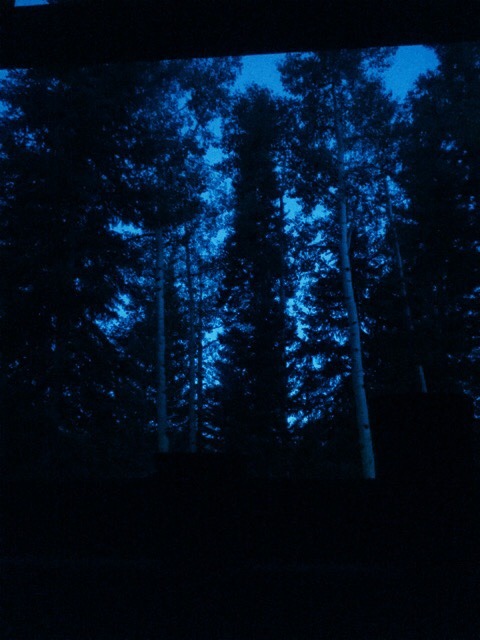
“When the eastern half of the sky went from black to cobalt and the trees began to separate themselves from the shadows, I pushed myself up from the mud and stepped out into the open.“ Greasy Lake T.C. Boyle
this is my favorite quote of all time and it’s 5:30am and I’m doing my favorite thing of all time and watching the sunrise because it’s a moment where I can truly feel at peace without anxiety and just take in the purpose of my life
#happy#blue#blue blog#blue glow#bluesky#morning#sunrise#tc boyle#poetry#short story#literature#my photo
3 notes
·
View notes
Photo
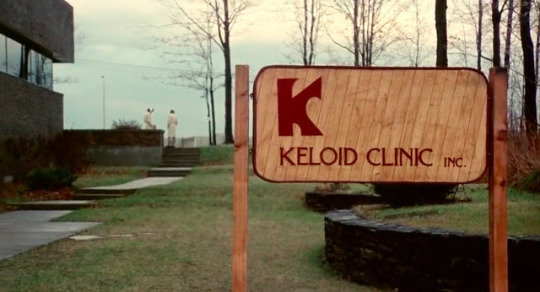
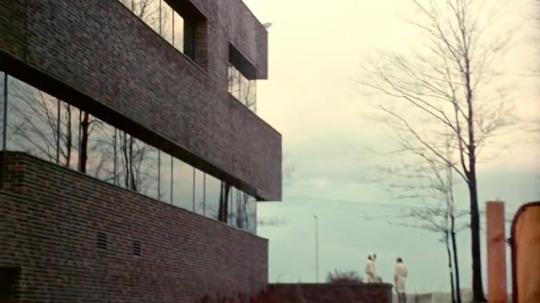
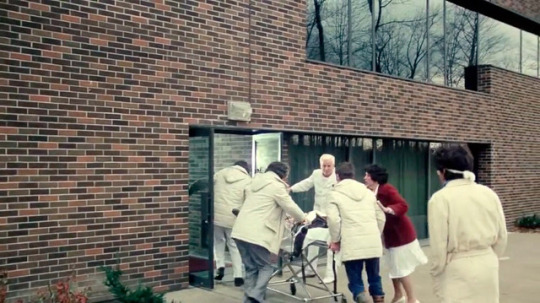
1 note
·
View note
Quote
But then, that’s the beauty of writing stories—each one is an exploratory journey in search of a reason and a shape. And when you find that reason and that shape, there’s no feeling like it.
T. C. Boyle
3 notes
·
View notes
Text
boyle bi yer tc haritasinda bile yokken varligini halen kabullenemiyorum tamam iki uc gun gelip kaldigimda problem yoktu bu kez burada fazla kalmak ve secimin yaklasıyor olması daha cok canımızı tehlikeye atıyor bir aya kalmaz catismalar baslar burda ve korkunc bi vilayet ya anlatamam size kadınlar disari cikamiyor sadece memur kesim isten eve evdeb ise giderlerken rastliyosunuz o kadar ilginc bir yer ki.. buranin yerli halki karilarini disari salmiyolar zatwn hayat desen yok bugun apartin onunde bi sigara iceyim dedim tanimadişm yabanci insanlar geldi bana garip garip bakıp kürtce bi seyler söylediler Yani bunlar basit ornekler anlicaniz yasadigim yer yer degil
11 notes
·
View notes
Note
tc sinirlari icerisinde en sevdigim yer olan muglayi boyle gormek asiri uzuyo olm beni les insanlarin guzelim yeri bu hale getirmesi sinirimi bozuyocidden amk :(
:(
2 notes
·
View notes